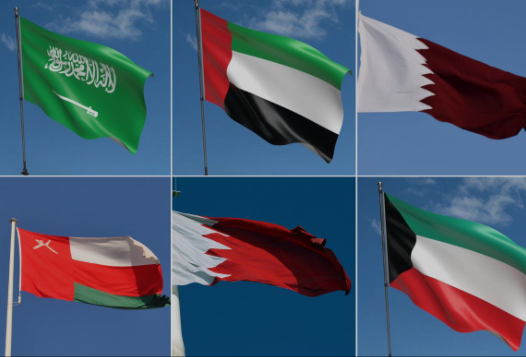GCC Countries Approve Unified Tourist Visa: A Game Changer for Tourism
Introduction
In a landmark move, the Gulf Cooperation Council (GCC) countries have recently approved the implementation of a unified tourist visa. This long-awaited decision marks a significant milestone in the region’s efforts to boost tourism and enhance economic cooperation. The unified tourist visa will simplify travel procedures, promote cross-border tourism, and unlock the immense potential of the GCC countries’ rich cultural heritage and natural landscapes. In this blog post, we will delve into the details of this historic decision, its implications for tourism, and the benefits it offers to both travelers and the GCC nations.

- The Significance of the Unified Tourist Visa
The GCC countries, including Bahrain, Kuwait, Oman, Qatar, Saudi Arabia, and the United Arab Emirates (UAE), have long been renowned for their vibrant cultural offerings, stunning landscapes, and modern infrastructure. However, until now, the visa policies across these countries have been diverse, complex, and sometimes confusing for tourists. The introduction of a GCC Countries Approve unified tourist visa aims to streamline the process, making it easier for visitors to explore multiple destinations within the GCC region.
The GCC Countries Approve Unified Tourist Visa will foster closer collaboration between the member states, encouraging them to work together to promote tourism as a collective entity. By aligning visa regulations, travelers will no longer have to navigate through multiple application processes or pay exorbitant fees for separate visas, thus making the region more accessible and attractive to international tourists.
- Simplified Travel Procedures
One of the key advantages of the unified tourist visa is the simplified travel procedures it offers. Under the new system, tourists can obtain a single visa that grants them access to all six GCC countries. This eliminates the need for separate visa applications and excessive paperwork, reducing both the time and cost involved in planning a multi-destination trip across the region.
Moreover, the unified visa will enhance the ease of movement between the GCC countries. Tourists will be able to travel freely within the region, experiencing the diverse cultures, landscapes, and attractions offered by each member state. This seamless connectivity will encourage longer stays, increased spending, and a deeper exploration of the unique offerings of the GCC nations.
- Boosting Tourism and Economic Growth
The implementation of a unified tourist visa is expected to have a profound impact on tourism and economic growth in the GCC countries. By simplifying travel procedures, the region becomes more appealing to international tourists, leading to a significant increase in visitor numbers. This influx of tourists will have a positive ripple effect on various sectors, including hospitality, transportation, retail, and entertainment, generating employment opportunities and driving economic growth.
The unified visa will also encourage intra-regional tourism, as travelers are more likely to explore neighboring countries when the visa process is hassle-free. This will lead to a more equitable distribution of tourist traffic within the GCC region, benefiting not only the popular destinations but also the hidden gems that often go unnoticed.

- Preserving Cultural Heritage and Promoting Sustainability
The GCC countries boast a rich cultural heritage that spans centuries, with historical sites, traditional crafts, and vibrant festivals. The unified tourist visa will help showcase this diverse heritage to a wider audience, promoting cultural exchange and understanding. Visitors will have the opportunity to immerse themselves in the local traditions, taste authentic cuisines, and participate in unique experiences, contributing to the preservation of cultural identities.
Furthermore, the unified visa system presents an opportunity for the GCC countries to promote sustainable tourism practices. By collaborating on environmental conservation and responsible tourism initiatives, the member states can ensure the long-term preservation of their natural landscapes and biodiversity. This includes promoting eco-friendly accommodations, implementing sustainable transportation solutions, and raising awareness about the importance of protecting fragile ecosystems.

Conclusion
The approval of a unified tourist visa by the GCC countries represents a significant step forward in the region’s tourism industry. The simplified travel procedures, increased connectivity, and enhanced economic cooperation will undoubtedly attract more visitors and stimulate economic growth. By showcasing their rich cultural heritage, preserving natural landscapes, and promoting sustainable tourism practices, the GCC countries are poised to become premier tourist destinations. As the unified visa system unfolds, it is an exciting time for travelers, who can now embark on unforgettable journeys across the GCC region, immersing themselves in the beauty, diversity, and warm hospitality that awaits them.
